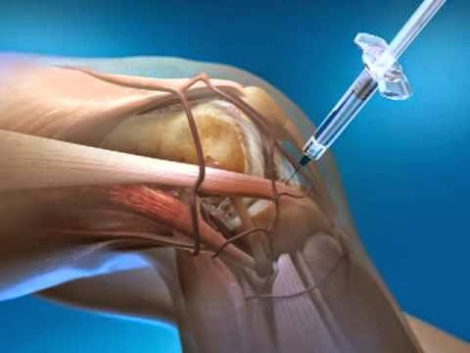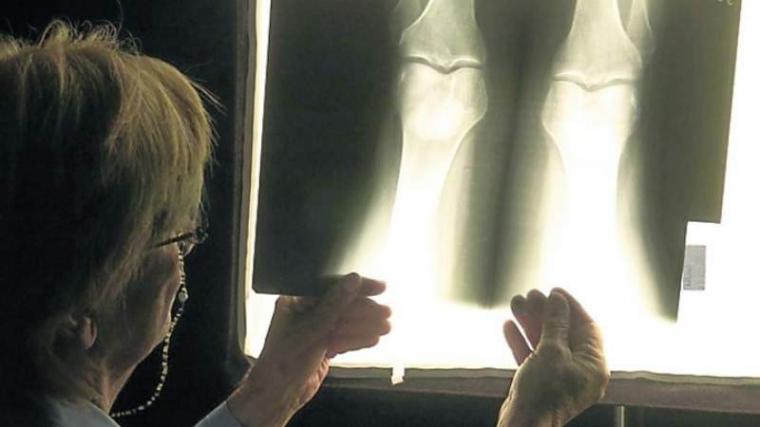WEB IProcess Pyme LITE!
Ideal for small companies that need productive modules, 10 corporate emails, 5 sections, 20 product catalog, 5 SEO campaigns, e-commerce.

 Español
Español
 English
English
The final results of the latest trials are expected to see the light of day in the coming weeks, but the truth is that a new injectable drug that would help regenerate knee cartilage in people with osteoarthritis would be approved shortly in the US.Nathaniel "Ned" David is the man who seeks the formula of youth and pursues his goal through his initiative, Unity Biotechnology, a biotechnology company that develops drugs that target senescent cells (those that lost their ability to divide and contribute to aging).
The osteoarthritis drug that Unity Biotechnology began testing in humans last fall seeks much more than just growing cartilage in damaged knees. The researchers say that "it is the first step to make us feel young again.""Aging is not a rigid and inflexible phenomenon," said the biochemist trained at Harvard and the University of California at Berkeley. Nature created control knobs that it uses and turns to change the lifespan of different organisms. Finally, as scientists , we are learning how to identify some of these knobs and really turn them into a therapeutic strategy. " Knee osteoarthritis is a painful condition in which the cartilage between the bones wears awayDavid, 51, thus explained the science behind UBX0101, the drug his company has in the latest Phase I clinical trials to treat the intractable arthritic condition, which affects 14 million Americans. The first results are expected to be published in the coming weeks.David`s ambition is to establish a new scientific field that he calls senolytic medicine. Senolytics are small molecules that can selectively induce the death of cells that have entered a state known as senescence - they no longer divide and instead trigger chronic low-level inflammation that is harmful to surrounding cells. Senescence is associated with a wide range of diseases that mainly occur in old age, such as heart disease, glaucoma, stroke, and arthritis. Purging the body of these "zombie" cells, David believes, could undo the ravages of time.Unity is among a small group of companies, including Google`s health affiliate Calico, trying to take advantage of advances in molecular biology to increase the duration of human health - the length of time a person is healthy. The idea, according to David, is not just to prolong life, but to allow older people to lead healthier lives. "We are not purely a senolysis company. We will also be exploring alternative mechanisms that can extend the human health span," he said.In 2017, Unity-funded researchers published a paper in the journal Nature Medicine that showed that removing senescent cells from the injured knees of mice using UBX0101 not only reduces pain, but also prompts the joint to regrow. cartilage. Later, the scientists repeated the finding using human knee tissue taken from patients who had undergone total joint replacements.Knee osteoarthritis is a painful condition in which the cartilage between the bones wears away. In 2018, there were 725,000 knee replacements in the US. If successful, Unity`s drug for the condition could reduce the need for surgery and generate up to $ 6.7 billion a year in revenue, according to a recent research note from Goldman Sachs Group Inc. on the company. Unity`s first human data from knee trials will show whether the drug affects 30 different cell markers believed to be associated with cellular aging.Last fall, doctors began injecting UBX0101 into the knees of older human patients suffering from moderate to severe osteoarthritis. "Right now, knee replacement drugs are pretty ineffective," said Morgan Stanley biotechnology analyst Mathew Harrison. "I think the biology is very interesting, and that the initial mouse data they have suggests that there is something in the data."Unity`s "first human data" from the knee trials will show whether the drug affects 30 different cellular markers believed to be associated with cellular aging. "It`s a new science," the experts concluded. "And it takes investors a little longer to digest new areas of science. So many people are skeptical. But those who are following this are going to look closely at the first data. in humans ".The drug to address an untreatable arthritic condition is in advanced-stage human trials and promises not only to prolong life, but to allow older people to lead healthier lives. The osteoarthritis drug that Unity Biotechnology began testing in humans on This past fall is looking for much more than just growing cartilage on damaged knees. The researchers say that "it is the first step to make us feel young again.""Aging is not a rigid and inflexible phenomenon," said the biochemist trained at Harvard and the University of California at Berkeley. "Nature created control knobs that it uses and turns to change the lifespan of different organisms. Finally,
Publication Date: 1900-01-01
Source: www.infobae.com/salud

.jpeg)
.jpeg)
.jpeg)
.jpeg)
.jpeg)
.jpeg)




Ideal for small companies that need productive modules, 10 corporate emails, 5 sections, 20 product catalog, 5 SEO campaigns, e-commerce.

Ideal to start your presence on the internet, catalog of 5 products, updating documents, hosting, corporate emails and more!

Ideal for small companies that need productive modules, 10 corporate emails, 5 sections, 20 product catalog, 5 SEO campaigns, e-commerce.

Ideal to start your presence on the internet, catalog of 5 products, updating documents, hosting, corporate emails and more!







